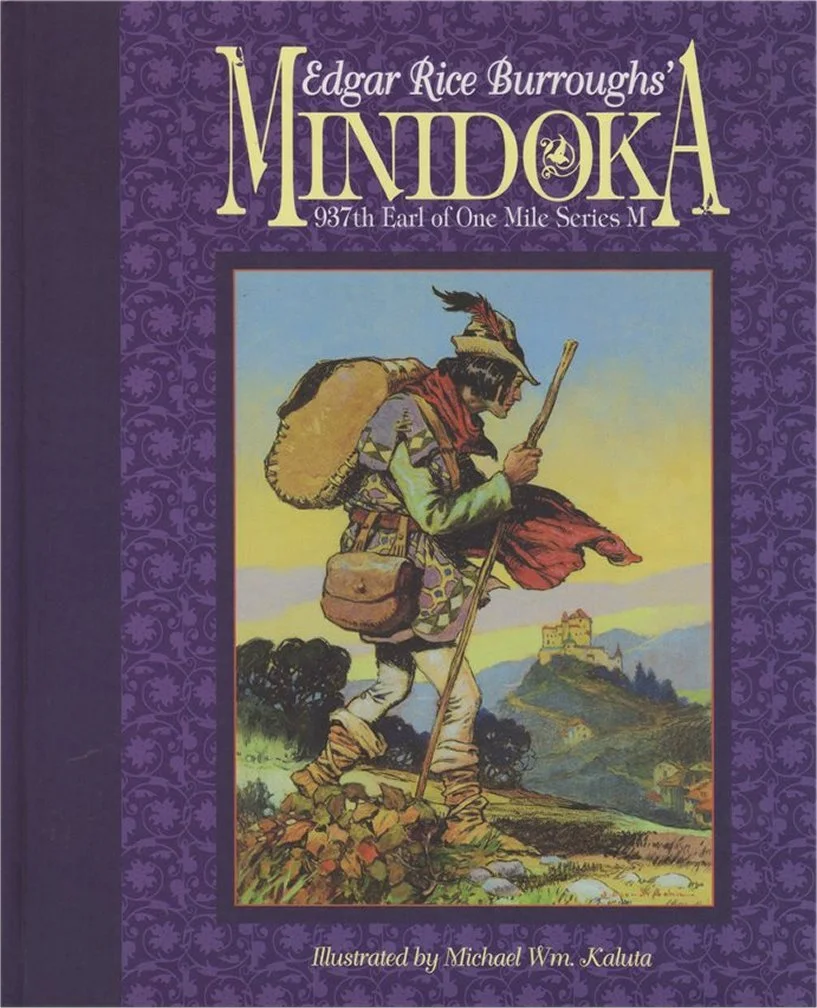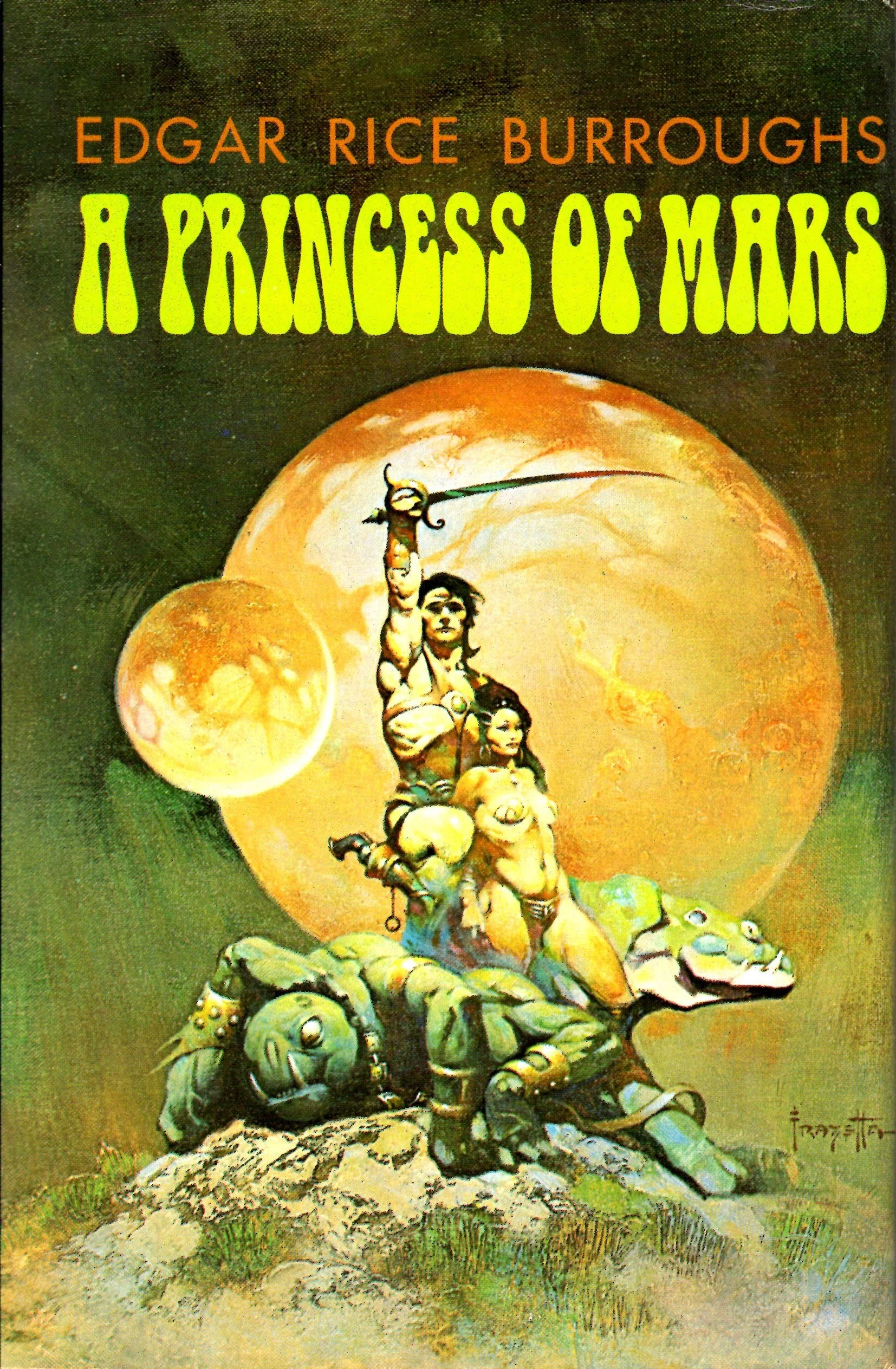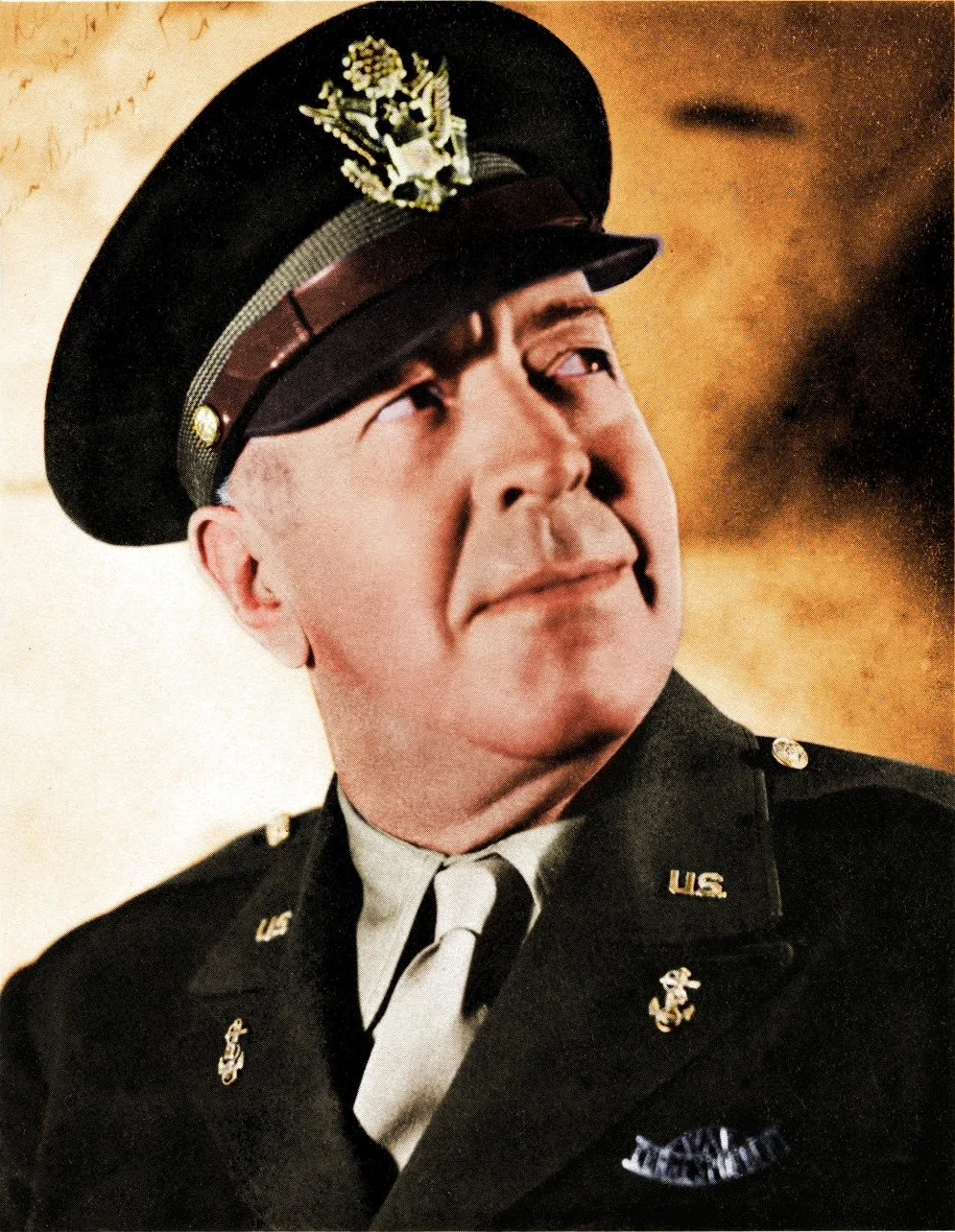Edgar Rice Burroughs: A Sesquicentennial Tribute--His Life
ERB portrait by Uwe Reber.
“Death, only, renders hope futile.” — Edgar Rice Burroughs
Here we are, Labor Day 2025 in the U.S. of A. What better day to celebrate the birth of Edgar Rice Burroughs, the quintessential American ‘author of the working man’? For ERB was—and remains—exactly that. He gave the ‘common folk’ of America what they wanted—and also goals to aspire to. In return, Americans took Burroughs to heart, making him rich and influential beyond his dreams.
Edgar Rice Burroughs was born on this date in 1875. His father was a brigadier general during the Civil War, serving with distinction in the Union Army. Young Edgar was a trial to his strict father, who called any tales from the young storyteller 'lies'. Like many a boy with intelligence--but no real direction--Ed found himself in trouble with his schoolmasters. Eventually, ERB's father sent the boy to the Michigan Military Academy, an institution that Ed himself referred to as a "polite reform school". Burroughs graduated knowing the basics of unarmed combat, fencing and horsemanship--but with his spirit unbroken.
Possessing the training--and with family tradition behind him--Burroughs joined the storied U.S. 7th Cavalry. He served at Fort Grant, Arizona Territory, with his main job being the apprehension of the Apache Kid. Like many a soldier before and since, ERB never fired a shot in anger, but that cavalry stint laid the groundwork for both the 'Barsoom' series and his Shoz-Dijiji/'Apache' novels. He was invalided out of the 7th due to a heart condition in 1897. He would outlive almost every trooper he served with.
Ed drifted a bit after that. He spent half a year working at his older brother's ranch in Idaho--gaining yet more 'IRL' experience, a working man on a working ranch. Growing up on a ranch myself and knowing those details of ERB's life, when things were particularly grueling--or boring--I would console myself, knowing that Ed had gone through similar crap.
The Dark Horse Comics edition of Minidoka. Cover by J. Allen St.John and illustrations by Michael Wm. Kaluta.
ERB returned to Chicago in 1899, working in a battery factory. Having worked in factories myself, I can only imagine what working in such a place was like at the turn of the century. On the plus side, Burroughs married his childhood sweetheart, Emma Hulbert, in January 1900.
In 1903, with no real prospects, Ed returned to Idaho, joining his brothers, Yale graduates George and Harry, who were successful ranchers in southern Idaho, and partners in the Sweetser-Burroughs Mining Company. ERB became manager of their Snake River gold dredge operation. Financially, it all led to nothing, but Burroughs did write his first novelette/short novel, Minidoka, during this period.
Minidoka was set in a hidden 'lost land' in Idaho. While borrowing elements from L. Frank Baum--the preeminent American fantasist at that time--it presaged much of ERB's subsequent work. Breakneck adventure, romance, wildly imaginative settings and political/social satire--all emblematic throughout Burroughs' later literary oeuvre—were present in that seminal work. It would be over a century until it was published.
Burroughs spent about seven years as a pencil-sharpener wholesaler. While certainly not the worst of all occupations, it is hard to see someone of Ed's temperament and obvious intellectual capacity being happy and content in such a position. Apparently, having ample time on his hands, he read a lot of pulps. The pulps were entering their golden age. ERB would gild that age even further.
Post Script: Well, I originally intended to end my ERB essay right before he exploded in the pulps, while he was still a common 'working man'. However, a commenter, Kian Tehrani, apprised me of a forthcoming Edgar Rice Burroughs autobiography. A titanic announcement. Which means we'll get the best Robert E. Howard bio (so far) and Ed's life in his own words in the same year. That said, let's finish up my summary of Mr. Burroughs' life...
So there was Edgar Rice Burroughs, reading pulps, with an unpublished novel in the files. He'd spent about seven years going nowhere. Here is what he said, looking back, in 1929:
"... if people were paid for writing rot such as I read in some of those magazines, that I could write stories just as rotten. As a matter of fact, although I had never written a story [not true], I knew absolutely that I could write stories just as entertaining and probably a whole lot more so than any I chanced to read in those magazines."
Burroughs was married, with two children and another on the way. He spent his free time writing ‘Under the Moons of Mars’--henceforth known as A Princess of Mars. All-Story bought it for the equivalent of about $11K in modern dollars. Six months later, Tarzan of the Apes debuted in the same pulp.
Cover art by Frazetta.
ERB had hit the literary lottery. Pulps were the 'streaming services' of that era. They provided entertainment every day, every week, every month. Ed now had two marquee characters utterly beloved by the American people.
Burroughs tried branching out with various novels like The Mucker and The Monster Men-which will be addressed in another post--but that first decade of his literary career definitely saw an expansion of the 'Barsoom' and 'Tarzan' universes.
In 1918, the first Tarzan movie was released. In 1919, ERB moved to California. Ed was such a cultural phenomenon at that point, that even lesser--though notable--novels by him, like The Lad and the Lion and The Oakdale Affair, were also made into movies. Such was the frenzied rush in Hollywood to get a piece of ERB on film. To this day, Burroughs remains one of the most 'adapted'--to use the term loosely-- authors of all time. Check out his IMDB entry here.
Burroughs was absolutely a force in the settlement of the San Fernando Valley, with his huge ranch later being incorporated--by the vote of the citizens thereof--as 'Tarzana'. Some have bitched about Ed's alliances with William Mulholland, but his commitment to the environment and Nature is evident throughout his novels and letters. Like Robert E. Howard, ERB believed in humans living few and far between.
Ed's star began to wane somewhat around the mid-1920s. The 'ERB market' had 'matured' by that point. Instead of utter dominance, Burroughs was now merely a 'solid brand'.
ERB had spent almost half his life barely scraping by. He now had a wife and three children. He would never go back to such mediocrity voluntarily. In 1923, Edgar Rice Burroughs became the first author in history to start his own LLC and publishing house--a move that sent shockwaves through the publishing industry that reverberate to this day.
The Burroughs machine kept chugging along through the 1930s, despite—or because of—the Great Depression. Reading Edgar Rice Burroughs gave his readers hope...and America needed that in spades.
Burroughs in his late sixties during World War II, serving as the oldest war correspondent in the U.S. Army.
In addition to the Tarzana ranch, Ed also owned property in Hawaii. Who wouldn't, if they had the money? On December 7, 1941, Edgar Rice Burroughs witnessed Japanese bombers flying overhead on their way to Pearl Harbor. Almost immediately, despite being sixty-six years of age with no monetary need to join, he volunteered to reenlist in the United States Army. He became the oldest Army war correspondent of World War II, being within sight of U.S. ships hit by kamikaze attacks at least once. His experiences would lead to one of the best 'late period' Tarzan novels, Tarzan and the Foreign Legion.
Ed demobilized and returned to civilian life, spending the rest of his days in Encino, California. He died in bed in 1950, just shy of seventy-five years of age. He was a patriarch beloved by his children and admired by his fans around the world. Not a bad way to live one’s life, I’d say.
As always, the official Edgar Rice Burroughs website is here. Also, the best ERB site on the entire Interwebz is here. The DMR Books blog has a rich ERB library of posts that can be accessed here. Also, a recent post about Michael Kaluta’s ERB art can be found here.




